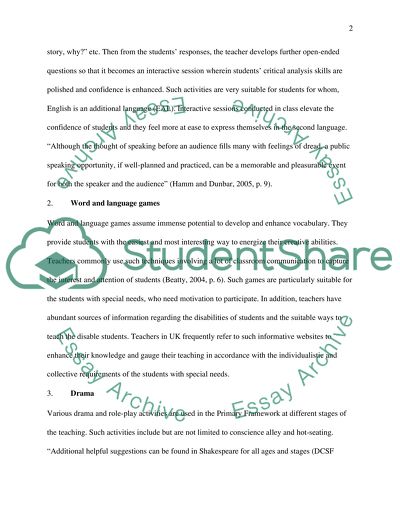Cite this document
(“Discuss and analyse strategies used by UK primary school teachers to Essay”, n.d.)
Retrieved from https://studentshare.org/education/1442154-discuss-and-analyse-strategies-used-by-uk-primary-school-teachers-to-develop-the-communication-and-literacy-of-primary-age-children
Retrieved from https://studentshare.org/education/1442154-discuss-and-analyse-strategies-used-by-uk-primary-school-teachers-to-develop-the-communication-and-literacy-of-primary-age-children
(Discuss and Analyse Strategies Used by UK Primary School Teachers to Essay)
https://studentshare.org/education/1442154-discuss-and-analyse-strategies-used-by-uk-primary-school-teachers-to-develop-the-communication-and-literacy-of-primary-age-children.
https://studentshare.org/education/1442154-discuss-and-analyse-strategies-used-by-uk-primary-school-teachers-to-develop-the-communication-and-literacy-of-primary-age-children.
“Discuss and Analyse Strategies Used by UK Primary School Teachers to Essay”, n.d. https://studentshare.org/education/1442154-discuss-and-analyse-strategies-used-by-uk-primary-school-teachers-to-develop-the-communication-and-literacy-of-primary-age-children.


